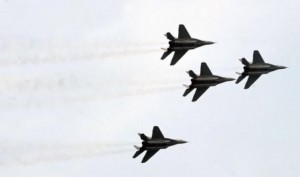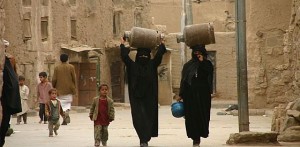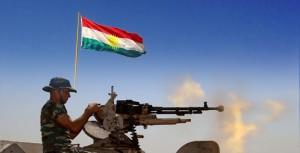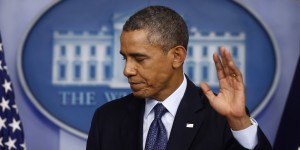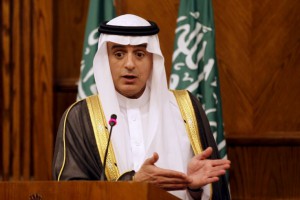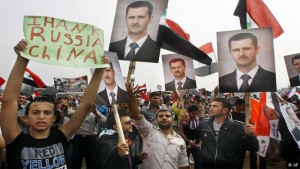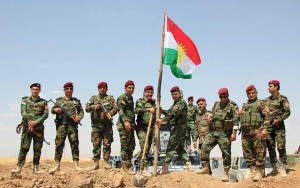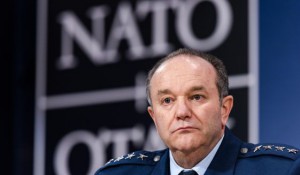Russia has called on the US to remove its aircraft from the air space of Syria, Fox News reported citing a senior US official, said RIA Novosti Sept. 30.
Yemen: Houthi atrocities on women strongly condemned
Arab and Yemeni human rights defenders and activists have condemned in the strongest possible terms the brutal atrocities, crimes and violations committed by the Houthi militia and group of deposed president Ali Abdullah Saleh against the women in Yemen.
Speakers condemned these human rights abuses terming them as “bereft of human sense” and said the perpetrators had no regard for the sanctity of women in Yemen.
These crimes, they underscored, had drawn severe criticism and condemnation from the international community as they constituted flagrant violations of the international conventions and declaration of women’s human rights.
The human rights defenders were speaking at a landmark event organised by the Arab Federation for Human Rights (AFHR) on the sidelines of the 30th session of the UN Human Rights Council in Geneva to expose the heinous crimes perpetrated by the Houthi militia against the Yemeni women. The event topped the list of anti-human rights activities that were discussed in Geneva.
Taking the floor first, Dr. Mona Hejres, a member of the AFHR and head of ‘Together for Human Rights’, spoke about the scale of suffering that the Yemeni women endured, ranging from violations to war crimes committed by the Houthi militia and Saleh group ever since they took control of Yemen and toppled the legitimate government.
Dr. Hejres said women, during the rule of the deposed president Ali Abdullah Saleh, had been subjected to grave human rights violations, noting that women were active participants in the revolution that drove Saleh out of power.
During that revolution, she said, women had faced many human rights crimes including killing, torture, arbitrary arrest and detention, and use of excessive force. These savage crimes, she added, made women the most vulnerable segment of the Yemeni community to face gross violations, exclusion and oppression.
Being deprived of their political, cultural and social rights, as well as their freedoms and role in running the state’s affairs and contributing to the nation’s development and building modern Yemen, Yemeni women have since been on a tireless struggle for their rights and freedom.
In her paper, Dr. Hejres elaborated on the suffering of Yemeni women at the hands of the Houthi militia and Saleh group, particularly reporting on murder, forced disappearances, kidnappings, deprivation of basic educational and health services, bombardment of residential districts, along with assassinations in the capital Sana’a, Aden and other cities.
She called upon the international community to live up to its responsibilities in protecting the Yemeni people, especially women, and back the Arab Coalition’s operations seeking to protect the Yemeni people. She also appealed to the UN Security Council to protect world peace and security by swiftly enforcing its resolutions on Yemen and ensure protection, safety and security for its people, and particularly women.
During the event, a number of heads of Yemeni human rights associations and organisations and members of the Yemeni Coalition to Monitor Human Rights Violations carried out by the Houthi militia and Saleh group in Yemen, confirmed that the suffering and violations committed against both, the Yemeni people and women in particular, were monitored and documented in its report, published by the Human Rights Council a week ago.
The report requested the international community and the UN Human Rights Council to work on activating their international mechanisms to protect the Yemeni people and to prosecute the war criminals belonging to the Houthis and Saleh military militias.
The AFHR and the Yemeni Coalition to Monitor Human Rights Violations, reiterated their rejection of the West’s move regarding a request to form an international Facts Finding Committee, as they perceived that such a move would dilute and ignore the human tragedy under which the Yemeni citizens have been reeling, especially when they are facing illegitimate and terrorist groups which practise terrorism and commit crimes against peaceful Yemeni civilian citizens in all areas of Yemen.
They also see in this move a way to create another Syria and a repetition of what happened in Iraq, stressing the importance of the international community rallying efforts to implement its international resolutions when it comes to those criminals.
At the event, Maryam Al Ahmadi, an activist at the Arab Federation for Human Rights (AFHR), underlined the importance of prosecuting war criminals affiliated to Al Houthi militia and the Saleh group and not giving them any chance to escape punishment or any political consecration in Yemen.
She also indicated the need to work hard to drag the Houthi militia and the Saleh group to face international justice, stressing the role played by the Arab Federation for Human Rights to accomplish this in cooperation with a lot of regional and international bodies.
In the same context, she also emphasised the importance of the international community assuming its international responsibilities aimed to provide protection to women during wars and armed and military conflicts and disputes.
Maryam bin Tawq, Coordinator at the Arab Federation for Human Rights, spoke about the importance and legitimacy of establishing the international coalition ‘Operation Restoring Hope’, aimed at protecting the Yemeni people from violations and crimes against humanity being carried out by Al Houthi group and the Saleh Militia, monitored by the Euro-Mediterranean Center for Human Rights.
She also pointed out that the Centre has found that those criminals have committed more than 4,500 human rights violations within the course of just one month of their control of Sana’a.
She added that some of these crimes can very well be considered as war crimes or crimes against humanity.
In this regard, she noted that the Centre has also provided some figures pertaining to the number and nature of violations committed by the Houthi militia and Saleh group against the Yemeni citizens, stressing the need to continue to support the legitimacy of the ‘Operation Restoring Hope’ that came after well considered decisions and was aimed at meeting humanitarian needs, as well as to provide protection to the Yemenis and their right to live in security and peace in their country.
Kurds launch offensive against Islamic State in north Iraq
Kurdish forces attacked Islamic State in northern Iraq on Wednesday in the latest of several offensives aimed at driving the militants away from the oil-rich city of Kirkuk.
The assault began in the early morning to capture the al-Gurra heights to the west of Kirkuk in the direction of the Islamic State bastion of Hawijah, Kurdish military sources said.
The Kurds took full control of Kirkuk last summer when Iraqi soldiers abandoned their bases in and around the city as Islamic State militants overran around a third of the country.
The peshmerga have been widening a buffer around the city in a series of offensives, clearing more than 530 square kilometres over the past six months, according to the region’s security council.
Apart from the gains around Kirkuk, the frontline between peshmerga and Islamic State has hardly moved for months.
Islamic State has not been able to take ground from the peshmerga since the U.S.-led coalition started bombing the insurgents.
The Kurds already control most of the territory they claim as their own, and have little incentive to push further into predominantly Arab towns and villages, except where they pose a direct threat to their region.
Obama suspends recruitment for Syria train and equip program
The United States has stopped recruiting new militants from inside Syria for military training outside the country as the troubled “train-and-equip” program is reevaluated.
The entire Pentagon program to train moderate Syrian rebels to fight Daesh is “under review,” though the US military is still recruiting for the program in other countries, according the US Defense Department.
“As we review the program, we have paused the actual movement of new recruits from Syria,” Pentagon Press Secretary Peter Cook said Tuesday.
“We also continue to provide support for current forces on the ground and to train the cohorts currently in the program,” he added.
Congress approved a $500 million program late last year to train and equip more than 5,000 “moderate” militants to fight in Syria.
The training program is run by US Special Forces in Turkey and Jordan, and is separate from a similar covert program by the CIA. However, US military officials have admitted that the program has failed.
The program’s first graduates were attacked earlier this year by al-Qaeda’s affiliate al-Nusra Front. Some were killed or captured, and the whereabouts of 18 militants in the first class are unknown.
Last week, the Pentagon admitted that the second group of about 70 trained militants had surrendered their weapons in exchange for safe passage through the Syrian border with Turkey.
The Pentagon initially said that it intended to train and arm about 5,400 militants a year as a proxy ground force against Daesh in Syria, a program that has yielded only a handful of militants so far.
albawaba.com
Saudi Arabia threatens ‘military action’ against Syria’s Assad
Saudi Arabia has called for Syrian President Bashar al-Assad to either step down or face military action, raising the stakes in the complex geopolitical scenario in the region further. Speaking in New York, Saudi Foreign Minister Adel al-Jubeir has made it clear that there is no future for Assad in Syria.
Saudi Arabia’s position has been explicitly expressed at a time when Russia is deploying its forces in support of the embattled Syrian leader. Dismissing Russia’s call for a regional cooperation against the Islamic State (Isis), without disturbing the Syrian regime, Jubeir said it is a “non-starter”.
After concluding his talks with Saudi allies at the UN General Assembly, Jubeir told reporters: “There is no future for Assad in Syria. There are two options for a settlement in Syria. One option is a political process where there would be a transitional council. The other option is a military option, which also would end with the removal of Bashar al-Assad from power.”
Jubeir, the foreign minister of the regional Sunni powerhouse, admitted that military invasion “could be a more lengthy process and a more destructive process but the choice is entirely that of Bashar al-Assad”. He refused to divulge any specifics when asked about the planned response of the West and its anti-Assad partners in the region to Russia’s military build-up. He said: “Whatever we may or may not do we’re not talking about” but immediately added, “There is a Free Syrian Army that is fighting against Bashar al-Assad.”
He went on: “There is a moderate Syrian opposition that is fighting against Bashar al-Assad and this opposition is getting support from a number of countries. And we expect that this support will continue and intensify.”
He also heaped scorn on Iran, the regional Shiite-inclined rival of the Saudi Kingdom and a staunch support of the Damascus regime, saying that Tehran is an “occupying power” looking to capitalise on the conflict. Shooting down the argument that the Sunni Kingdom is involved in a regional race with Shiite Iran, the Saudi foreign minister continued: “We’ve been living in the Middle East all our lives. We’re not the ones meddling in the affairs of other countries. The Iranians are. So you should look at it as Iranian aggression against other countries in the region.”
China calls for political solution for Syria
China’s foreign minister has repeated a plea for the crisis in Syria to be resolved politically, during a meeting of the permanent members of the UN Security Council, the Xinhua state news agency reported on Wednesday.
Russia and the United States, two other permanent members, agreed on Monday to look for a diplomatic end to the Syrian civil war but clashed over the central question of whether Syrian President Bashar al-Assad should retain power.
Chinese Foreign Minister Wang Yi told the meeting at the United Nations that the five permanent members “should unite and seek the opportunity to politically solve the Syrian crisis as the parties are showing more willingness to do so”, Xinhua said.
The convening of a third Geneva peace conference at an appropriate time “should be considered and conditions conducive to the opening of such a conference should be actively created”, Wang said, according to the report.
Pentagon to begin talks with Russia over Syrian airspace
The Pentagon announced Tuesday it will open “lines of communication” with Russia to deconflict air operations in Syria, Defense Department spokesman Peter Cook said.
“We expect the details of those conversations, including the exact timing of those conversations, will be worked out in the coming day,” Cook said at a press briefing.
The move keeps in place a suspension in the U.S.-Russia military relationship over the Ukraine conflict, while allowing the two sides to avoid potential accidents in Syria.
“The purpose of these deconfliction discussions will be to ensure that ongoing coalition air operations are not interrupted by any future Russian military activity, to ensure the safety of coalition air crews and to avoid misjudgment and miscalculation,” Cook said.
The need for deconfliction in Syria’s airspace has grown, with the U.S. and other coalition forces conducting air operations against Islamic State in Iraq and Syria (ISIS) there, and Russia readying to launch its own airstrikes.
Russia has surged fighter aircraft, vehicles, troops and other equipment to an airfield in western Syria, purportedly to shore up Syrian President Bashar al-Assad in his two-front war against ISIS and other opposition groups.
Russia has also begun flying surveillance operations in Syria, the Pentagon confirmed on Friday.
Moscow insists its operations are geared toward protecting ally President Assad, versus attacking anti-regime forces who the U.S. is supporting in its fight against ISIS.
The administration says it would consider working with Russia if its operations are strictly against ISIS, and not bolstering Assad and attacking other groups.
“As the presidents discussed in New York, the United States and Russia have a common interest in fighting [ISIS] in Syria,” Cook said.
“As the secretary made clear in his own conversation with [Russian Defense Minister Sergei Shoigu], the goal here should be to take the fight to [ISIS] and not to provide support or defend the Assad regime,” he added.
World proud of Peshmerga: UK Military Official
Britain’s Senior UK Defence Adviser for the Middle East has called the Kurdish Peshmerga forces the key factors in the fight against Islamic State militants.
On Tuesday, the Kurdistan Region President Massoud Barzani met with Lieutenant General Tom Beckett UK’s Defence Senior Advisor to Middle East and a British military delegation in Erbil, the presidency office has revealed.
During the meeting Barzani outlined the latest developments in the fight against Islamic State (IS) and the current security and political situation in the region and thanking the international coalition forces for the crucial role they play in the campaign against IS.
He told Beckett that the Peshmerga still requires more support to maintain its successful operations against the jihadist group.
Lt. Gen. Beckett acknowledged the sacrifices made by the Peshmerga in protecting the people and territory of the Kurdistan Region, and said that their significant victories have made the world proud.
NATO commander: Russia has ulterior motives for air defense system in Syria
The Russian Foreign Ministry has repeatedly claimed the reason for Moscow’s military buildup in Syria has been to fight the Islamic State, but NATO’s top commander said Monday he believes the presence of Russian anti-aircraft systems in the country points to ulterior motives to hinder U.S. and allied operations in the region.
“As we see the very capable air defense [systems] beginning to show up in Syria, we’re a little worried about another A2/AD bubble being created in the eastern Mediterranean,” Gen. Philip M. Breedlove, NATO Allied Command Operations in Europe Supreme Allied Commander, told an audience at the German Marshall Fund.
A2/AD stands for anti-access/area denial, and refers to the means used to prevent the enemy from infiltrating certain territory.
“During the early stages of warfare, A2/AD could have been a moat around a castle, or spikes dug into the ground—anything to keep the enemy off a certain swathe of territory,” The Washington Post’s Thomas Gibbons-Neff explains. “In the 21st century, however, A2/AD is a combination of systems such as surface-to-air missile batteries and anti-ship missiles deployed to prevent forces from entering or traversing a certain area—from land, air or sea.”
Now Russia has set up an A2/AD bubble in Syria, its third denial zone around Europe, Gen. Breedlove. The first is located at Russia’s naval base in Kaliningrad in the Baltics and the second zone in Russian-occupied Crimea coves the Black Sea.
The newest A2/AD bubble in Syria suggests that Russia’s involvement in the region has little to do with fighting Islamic State terrorists and a lot more to do with aiding embattled Syrian President Bashar al-Assad, Gen. Breedlove said.
“These very sophisticated air defense capabilities are not about [the Islamic State], they’re about something else,” he said. “High on Mr. Putin’s list in Syria is preserving the regime against those that are putting pressure on the regime and against those that they see who might be supporting those putting pressure on the regime.”
In recent weeks Russia has moved more than two dozen aircraft, at least 500 troops, tanks and other armored personnel carriers to an airfield in Latakia province in Syria according to multiple news reports.
President Obama and Russia President Valdimir Putin held a 90-minute private meeting Monday at the U.N. General Assembly in New York. The two also made separate speeches to the assembly, with Mr. Obama raising concerns over Mr. Putin’s actions in Ukraine while Mr. Putin blamed the U.S. and its failure to cooperate with Mr. Assad for causing chaos in Syria.
What are the implications of Russia-US cooperation for Syria’s war?
Now that Vladimir Putin and Barack Obama have held their first formal meeting for two years, how does the Syrian war proceed?
Will the two men’s vague talk of co-ordination make any difference to the battle lines between the Syrian army and the forces of the Islamic State (IS) group?
Can the Syrian Kurds succeed in their plan, backed by the United States, to push IS from the last crossing point to Turkey, thereby blocking the flow of volunteers to IS?
For the moment these questions have to remain open. But what is clear is that Putin has had a productive week. If good timing is the hallmark of a great tactician, then his decision to seize the initiative on Syria was a masterstroke.
At least four factors had prepared the ground for Syria to become the dominant theme at the UN general assembly and give Putin the chance to stand out above the crowd of leaders, Obama included.
Firstly, the drama of small numbers of Muslims from almost every European country going off to join IS has dominated tabloid newspapers over the past few months, heightening fears of blowback when they returned.
Secondly, in a way that nothing else has done over the last four years the sudden surge of Syrian refugees risking their lives to reach Europe alerted European politicians to the need to go to the source of the country’s despair and help to end the civil war.
Then came the revelations that the US programme to train a secular rebel force to confront Bashar al Assad’s army had failed to produce more than a handful of fighters.
Finally there was increasing recognition among Western think tanks and many Western governments of two things: no political solution could be brokered for Syria if Assad’s resignation was insisted on as a precondition; and some way had to found to preserve the institutions of the Syrian state and its army, whatever happened to Assad, if chaos were not to ensue as in post-dictatorship Iraq and Libya.
While none of these issues were new, they combined this summer to reach a critical mass. People sensed that Washington and its anti-IS coalition were floundering and there had to be new thinking.
Enter Putin.
The Russian president had hinted several months ago that he would attend this year’s UN General Assembly. His motive was to counter the Western focus on Russia’s military involvement in Ukraine and show he would not be cowed by sanctions and other efforts to isolate him.
But he decided that the best way to do that at an international gathering was not to concentrate on explaining his thinking on Ukraine, which would look defensive.
A more dynamic approach was to change the UN meeting’s agenda, offer unexpected solutions, and make headline-grabbing moves that may start to bring them about. The crisis in Ukraine, for all the noise that NATO makes about it, has produced a death toll of civilians in a year and a half that roughly equals the number killed in Syria in an average month.
Syria is clearly the bigger crisis, and in order to focus attention on it, and on Russia’s ability to influence it, Putin turned to a favourite instrument – hard power.
By sending Russian tanks, aircraft and advanced weaponry to Syria and increasing the number of Russian advisers there he got everyone talking. This was not a covert intervention as in the Ukraine but a deliberate flaunting of hardware and troops that Putin wanted the world to see.
He was careful to say Russia would not be committing its ground forces into battle but he was less clear on whether Russian aircraft would be involved. Russia would certainly be arming the Syrian air and ground forces with better tools.
Although the media made much of Putin’s allegedly unconditional support for Bashar al Assad, the Russian leader’s comments were carefully phrased to suggest he wanted serious change. Particularly in an interview with CBS before leaving for New York, he talked of the need for reform and transformation in Syria.
“There is no other solution to the Syrian crisis than strengthening the effective government structures and rendering them help in fighting terrorism, but at the same time urging them to engage in positive dialogue with the rational opposition and conduct reform,” he said.
As for Russian aid to the Syrian government and army, “we do it hoping that Syria will launch the political transformation necessary for the Syrian people”.
So how will the war go now?
A year since it began, the US bombing campaign has not blunted IS’s fighting capacity. IS was blocked from advancing last autumn from Mosul to Erbil, the capital of the Kurdistan Regional Government of Iraq, but it compensated by seizing Ramadi in Iraq and Palmyra in Syria this year.
Kurdish success in northern Syria
The most successful anti-IS front has been in the Kurdish regions of northern Syria where the so-called People’s Protection Units (YPG) drove IS out of Kobane after four months of fighting, the longest battle of the IS war, and then out of Tal Abyad.
The two towns were important crossing points for IS volunteers, and finance to pay for their fighters, as well as transporting weapons. In both cases US bombing played a major role.
In Kobane IS resisted fiercely. The town had become a symbol, and IS sent hundreds of men into battle.
Tal Abyad, by contrast, was relinquished with little fight, once IS realised their communication lines were about to be cut south of the town, leaving their forces surrounded.
As Misro Munzir, a 21-year-old soldier who was recovering from a leg wound in Kobane’s military hospital after fighting in Tal Abyad, told MEE last week: “Da’esh [the Arabic acronym for IS] didn’t fight hard in Tal Abyad. The experienced fighters withdrew and only twenty five others stayed behind. They were confused by the airstrikes”.
One of the next fronts looks set to be the sector of the Syrian-Turkish border, west of the Euphrates, that connects Jarabulus with Azaz. According to Fuad Hussein, Kurdish President Massoud Barzani’s chief of staff, the YPG has won US backing for a coordinated campaign of ground forces, aided by air strikes, to liberate the region.
“I know the US are focusing on Jarabulus to cut the movement of terrorists”, he told MEE in Erbil. “The US are planning to cut all the roads which lead to the main cities under IS control. Fighting them inside the cities is hard. It’s easier to isolate cities, and isolation can start with cutting the roads.”
Asked if US support for seizing the last IS-controlled crossing from Turkey by military force showed the US lacked confidence that Turkey would close the border to IS militants by itself, Hussein said: “I’m not saying that. Co-operation between Turkey and the Americans is good.”
He implied that Turkey had given Washington assurances that it will not bomb YPG forces when they assault the Jarabulus-to-Azaz area.
If the Jarabulus front is one impending battle, another may be around Palmyra. Syrian state media claimed last week to have captured two villages west of Palmyra which had earlier fallen to IS.
Coordination with Syrian army?
It would be logical for the Syrian army to continue their forward thrust. Syrian planes have already been bombing the town Palmyra itself several times in recent weeks.
A key test of the promised US-Russian co-ordination would then be if the Russians alerted the Pentagon to a planned advance by the Syrian army so that Syrian and US aircraft could plot their bombing targets together.
Syrian planes and US planes were in the skies simultaneously over different parts of Hasaka, a town in northern Syria which is divided into a government-held area and a larger YPG-held area, after it came under IS attack in July, according to witnesses who spoke to MEE last week.
The geography of the town meant that co-ordination between the two airforces was not required in the way that it would be needed in an effort to liberate Palmyra.
The US bombing campaign has forced IS to change tactics. Instead of hundreds of troops advancing in vehicles it is increasingly resorting to tactics from the Iraq war a decade ago – suicide bombings by car-drivers and individuals on foot.
The Kurdish region of northern Syria has seen numerous explosions in recent weeks, three in one week in Hasaka alone. In Kobane in June IS infiltrated dozens of fighters wearing YPG uniforms who massacred over 200 civilians in a combination of revenge for their earlier defeat and as a sign that they are still a force.
In Iraq IS has lost ground in recent months west of Kirkuk. But Fuad Hussein, the Kurdish president’s chief of staff, is under no illusion about the danger IS still represents. He has regular discussions with US diplomats and generals.
“Daesh being in Mosul is a threat to us. They can easily reorganise and move from one place to another. If they can get more weapons and manpower they will move out of Mosul. They’ve become weaker. They’re losing ground and much equipment but they can still move within 50 per cent of Syria,” he said.
Whether US-Russian co-ordination can reduce IS’s strength remains to be seen.
- « Previous Page
- 1
- …
- 276
- 277
- 278
- 279
- 280
- …
- 401
- Next Page »
